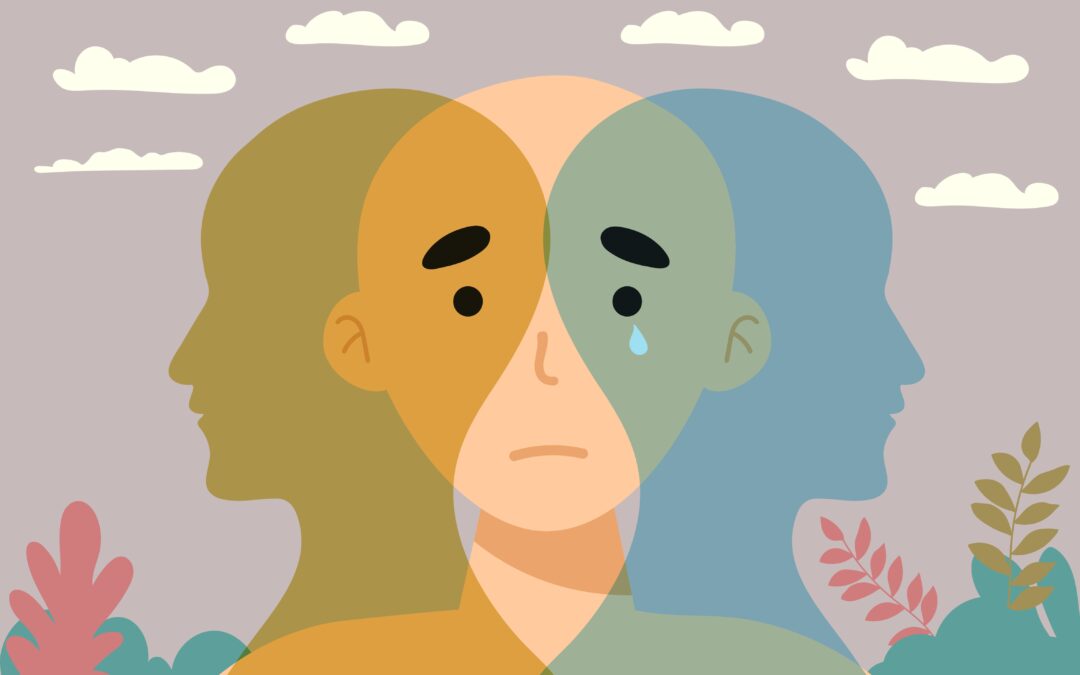In the realm of addiction recovery, it’s common for the focus to be solely on breaking free from the clutches of substance abuse. However, an equally crucial facet of addiction often remains in the shadows – the intricate interplay between addiction and mental health. As Arizona’s premier rehab, recovery, and detox center, we understand the profound significance of recognizing and addressing dual diagnosis, where substance abuse and mental health disorders coexist. Let’s explore the enigmatic world of dual diagnosis, shedding light on its complexities and offering insights into its treatment.
The Intricate Connection:
- Hidden Mental Health Link: The relationship between drug or alcohol addiction and mental health runs deep.
- Many individuals grappling with addiction unknowingly bear an underlying mental health condition, which might not immediately reveal itself.
- Masked Symptoms: Substance abuse often masks symptoms of mental illness, making it challenging to distinguish between behaviors stemming from addiction and those associated with mental health issues.
Unveiling Dual Diagnosis:
- The Discovery Gap: Mental health conditions may not surface immediately and often go unnoticed until they are identified during rehabilitation.
- Co-Occurring Struggles: When substance abuse and a mental health disorder coexist, the condition is known as dual diagnosis.
- A Growing Awareness: The concept of dual diagnosis is gaining traction within the addiction rehab industry, leading to increased awareness and understanding.
The Paradox of Cause and Effect:
- Conundrum of Causality: Determining whether addiction triggers mental illness or vice versa is complex due to overlapping symptoms.
- Self-Medication: Substance use may stem from an attempt to self-medicate and alleviate the distress caused by mental health disorders.
Drug Use as a Shield:
- The Self-Medication Mechanism: Research suggests that individuals with mental health disorders often turn to substance abuse to alleviate symptoms.
- Illusion of Relief: Conditions like anxiety, depression, and insomnia can drive individuals to seek solace in drugs or alcohol to escape negative feelings.
The Dark Side of Dual Diagnosis:
- Bidirectional Influence: Drug abuse can trigger or worsen mental health conditions, and vice versa.
- Altered Brain Health: Substance abuse alters brain physiology, compromising mental health and overall brain function.
Unveiling the Risks of Dual Diagnosis:
- Magnified Dangers: Dual diagnosis intensifies the risks associated with mental health issues and addiction.
- Heightened Vulnerability: Dual diagnosis can lead to self-destructive behavior, violent tendencies, and an increased suicide rate.
The Dual Diagnosis Challenge:
- The Heaviness of Coexistence: The impact of dual diagnosis is profound, affecting the individual and their loved ones.
- Diagnostic Difficulty: Identifying dual diagnosis can be complex, requiring ongoing assessment due to the intertwined nature of both conditions.
Navigating Dual Diagnosis Treatment:
- The Relapse Risk: Effective management of dual diagnosis demands continuous evaluation of both conditions to prevent relapse.
- Customized Care: Individualized treatment plans address both substance abuse and mental health issues, ensuring comprehensive healing.
- Multi-Pronged Approach: Treatment methods include medical detox, individual counseling, medication-assisted treatment, and mindfulness practices.
Embracing a Holistic Approach:
- The Integrated Solution: A holistic approach is paramount to treating dual diagnosis, addressing substance dependency while enhancing behavioral and mental health.
- Long-Term Healing: The journey doesn’t end after rehab; extensive counseling and medications might be necessary to sustain recovery.
Substance abuse and mental health disorders:
Dual diagnosis, the intricate intermingling of substance abuse and mental health disorders, is an evolving area of understanding in addiction recovery. By acknowledging and addressing both aspects, we pave the way for a comprehensive recovery journey that encompasses healing not only from addiction but also from the depths of mental health struggles. Let us stand united in guiding individuals towards a path of holistic healing, breaking the chains of dual diagnosis, and fostering a life of enduring well-being.

